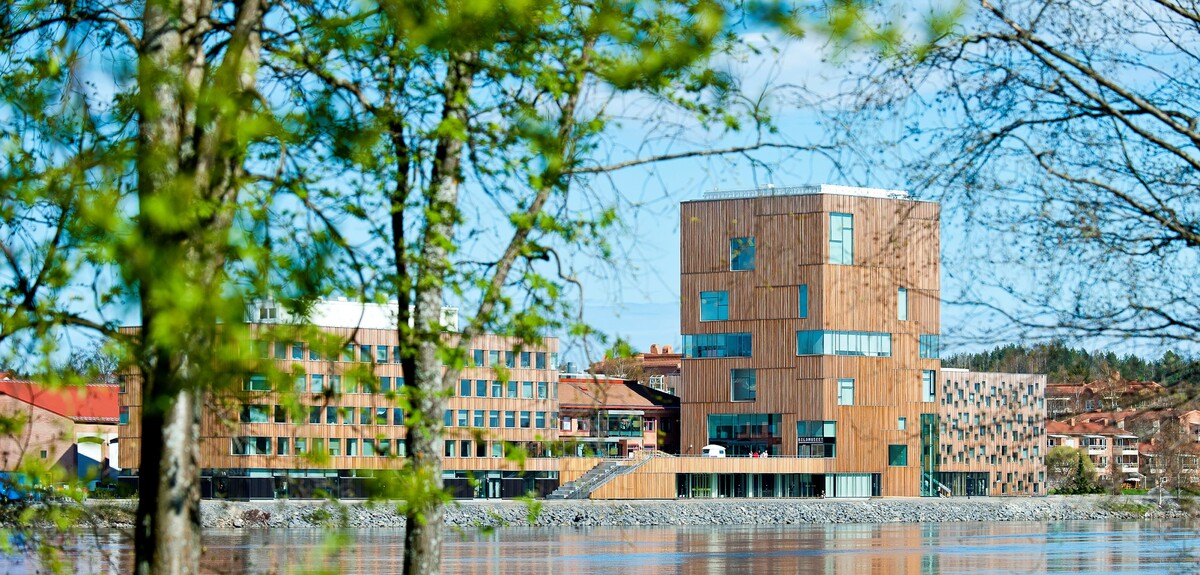Laboratory engineer (6 months) molecular parasitology - Befattningen är under tillsättning eller redan tillsatt, och det är inte längre möjligt att lämna in en ansökan
This advert is not available!
Umeå universitet, Medicinska fakulteten
Umeå University is one of Sweden’s largest higher education institutions with over 37,000 students and about 4,700 employees. The University offers a diversity of high-quality education and world-leading research in several fields. Notably, the groundbreaking discovery of the CRISPR-Cas9 gene-editing tool, which was awarded the Nobel Prize in Chemistry, was made here. At Umeå University, everything is close. Our cohesive campuses make it easy to meet, work together and exchange knowledge, which promotes a dynamic and open culture.
The ongoing societal transformation and large green investments in northern Sweden create enormous opportunities and complex challenges. For Umeå University, conducting research about – and in the middle of – a society in transition is key. We also take pride in delivering education to enable regions to expand quickly and sustainably. In fact, the future is made here.
Are you interested in learning more? Read about Umeå university as a workplace
The Faculty of Medicine, which consists of 13 departments, is responsible for biomedical research and courses in the field of nursing and health care and has an extensive research and graduate education in more than 80 subjects.
The Department of Molecular Biology, Faculty of medicine seeks a laboratory engineer to the project “functional characterisation of essential exported parasite proteins”. The position is funded through Molecular Infection Medicine Sweden (MIMS). The laboratory engineer position is full-time for six months with access by agreement.
Project description and work tasks
The malaria parasite causes disease by invading and replicating within red blood cells. The interaction between the parasite and host determines the outcome of infection and disease. In our lab we develop and apply high throughput genetic screening tools to the study of malaria parasite gene function. Using a scalable gene knock-out method we call barcode sequencing (barseq) we have previously mapped out which of the rodent malaria parasite Plasmodium berghei genes that are essential for the parasite to grow in the blood stream of infected mice. We are now adapting this method to study genes essential to blood stream growth and that cannot be knocked out. The successful candidate will deploy, scalable and innovative assays to map out the role of essential parasite genes during red blood cell growth and host interactions.
The goal of this project is to conduct experiments to support a larger ongoing project in the lab that aims to:
1) Develop new functional assays aiming to characterise the different stages of P. berghei intraerythrocytic development.
2) Investigate suitability of new functional assays to scaling using barseq.
The selected candidate will under supervision of the group leader and other group members design and construct CRISPR/Cas9 gene targeting vectors, handle and transfect malaria parasites, FACS, cell sorting and microscopy, and document and present the findings.
You will be based in the lab of Ellen Bushell at the Department of Molecular Biology, Umeå University. The Bushell lab is based at Department of Molecular Biology and is a part of The Laboratory of Molecular Infection Medicine Sweden (MIMS, http://www.mims.umu.se/), which is the Swedish node within the Nordic EMBL Partnership for Molecular Medicine.
Qualifications
You must hold a University degree equivalent to a European University Master’s degree in molecular biology (or equivalent fields) at the time of the recruitment (240 ECTS).
You need to be fluent in spoken and written English. You should be highly motivated and able to work productively in a team. Excellent communication skills for interacting effectively with senior colleagues and peers are required.
You should have documented experience in molecular cloning methods such as GIBSON assembly and CRISPR/Cas9 vector design and construction, as well as previous experience in cultivation and transfection of eukaryotic parasites, for example malaria parasites. Some experience in standard biochemical techniques (western blotting and immunofluorescence assays) is also required.
Other desirable qualifications
Experience in confocal microscopy or flow cytometry (FACS), and software to process and analyse FACS and image data is desirable. Knowledge of bioinformatics and programming is not a requirement and training is available, but it is a merit.
Application
You apply through our recruitment system Varbi. The application should be written in English (preferably) or Swedish. The deadline for application is July 19th 2022. The application should include:
• A personal cover letter explaining why you are interested in the position, how you can contribute to the project and in which direction you may want to develop it (no more than one A4 page).
• A curriculum vitae that documents academic education and past and previous employments.
• Names and contact details with e-mail addresses of two or three academic references.
• Other relevant documentation you wish to include in support of your application such as copies of relevant degree certificates.
We welcome your application!
Further information
For more information, please contact Dr Ellen Bushell (www.bushelllab.com).
| Type of employment | Special fixed-term employment |
|---|---|
| Contract type | Full time |
| First day of employment | As agreed |
| Salary | Monthly salary |
| Number of positions | 1 |
| Full-time equivalent | 100% |
| City | Umeå |
| County | Västerbottens län |
| Country | Sweden |
| Reference number | AN 2.2.1-1198-22 |
| Contact |
|
| Union representative |
|
| Published | 28.Jun.2022 |
| Last application date | 19.Jul.2022 11:59 PM CEST |

